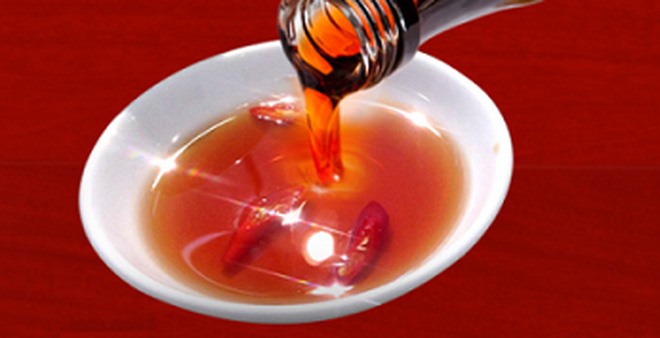 Society
Society

Fish sauce makers and food technology experts are voicing their scepticism and discontent towards an announcement on the high arsenic content in fish sauce, an essential element in Vietnamese cuisine.
 |
| Fish sauce. Illustrative Photo |
HÀ NỘI — Fish sauce makers and food technology experts are voicing their scepticism and discontent towards an announcement on the high arsenic content in fish sauce, an essential element in Vietnamese cuisine.
The announcement was made early this week by the Việt Nam Standards and Consumers Association (Vinatas).
Hồ Kim Liên, chairman of the Phú Quốc Fish Sauce Association, said the association had filed a petition demanding a clarification of the announcement from the Ministry of Industry and Trade, the Ministry of Health and Kiên Giang Province’s authorities.
“The information was unclear and threatens to push traditional fish sauce makers towards bankruptcy,” she said.
Vinatas, a non-profit organisation, on Monday announced the result of its test on 150 varieties of fish sauce sold in the market. Of these, 101 varieties of 88 brands, including one Thai brand, have arsenic content exceeding the permitted limit of 1mg per litre, according to the announcement.
However, Trương Quang Hiến, chairman of the Phan Thiết Fish Sauce Association, said Vinatas failed to clarify the difference between organic and inorganic arsenic compounds for the public.
"They did not make it clear. Organic arsenic compounds are non-toxic. But the ambiguity makes consumers misunderstand the information,” he said.
“In the past two days, some 10 members of my association have come to me demanding a clarification of the announcement to ease the anxiety of both consumers and fish sauce makers.”
Experts on food technology also expressed their dissatisfaction with Vinatas’ announcement.
According to Vũ Thế Thành, a lecturer on food safety of the Việt Nam Association of Seafood Exporters and Producers, arsenic is present in inorganic and organic forms.
While inorganic arsenic compounds are highly toxic, organic arsenic compounds, which are often found in sea water and fish, are considered non-toxic. Fish sauce is made from fish, therefore most of its arsenic content is organic arsenic compounds, which cause little or no harm to humans, Thành said.
The limit of 1mg per litre set by the Ministry of Health for dipping sauce in general, including fish sauce, is applicable for inorganic arsenic compounds, he said.
He also cited a survey announced in 2008 by the Food Chemistry journal on arsenic content in fish sauce exported to Austria from Việt Nam and Thailand. The result showed a majority of arsenic compounds found in the fish sauce were organic in nature and the products were safe.
“The result of Vinatas’ test is about arsenic in general, so it holds no meaning with regard to safety assessment of the product,” Thành said.
Associate Professor Nguyễn Duy Thịnh from the Food and Biotechnology Institute shared a similar opinion.
“Vinatas should not have messed up the two types of arsenic,” he said.
“The announcement was not made in the proper way. They cannot just publish the result without clear analysis and explanation.
“How can ordinary consumers know the difference between organic and inorganic arsenic? On hearing fish sauce contains arsenic, they will panic,” he said.
At a meeting with the prime minister’s task force team on Tuesday, Nguyễn Thanh Phong, head of the Food Safety Department, under the Ministry of Health, said an inter-sector team had been conducting inspection of fish sauce sold in Hà Nội and HCM City since October 12.
The team would expand the inspection to other regions, including those having a long tradition of making fish sauce, such as Phú Quốc in Kiên Giang Province.
The result would be submitted to Prime Minister Nguyễn Xuân Phúc before October 22, Phong said.
Meanwhile, Đặng Văn Chính, chief inspector of the ministry, said the ministry had asked inspectors at localities to take samples of fish sauce sold in their respective regions four months ago. This would serve as a basis to carry out a nationwide inspection on production and sale of fish sauce in 2017.
Việt Nam, currently, has some 2,800 fish sauce makers, producing around 2 million litres per year. — VNS




